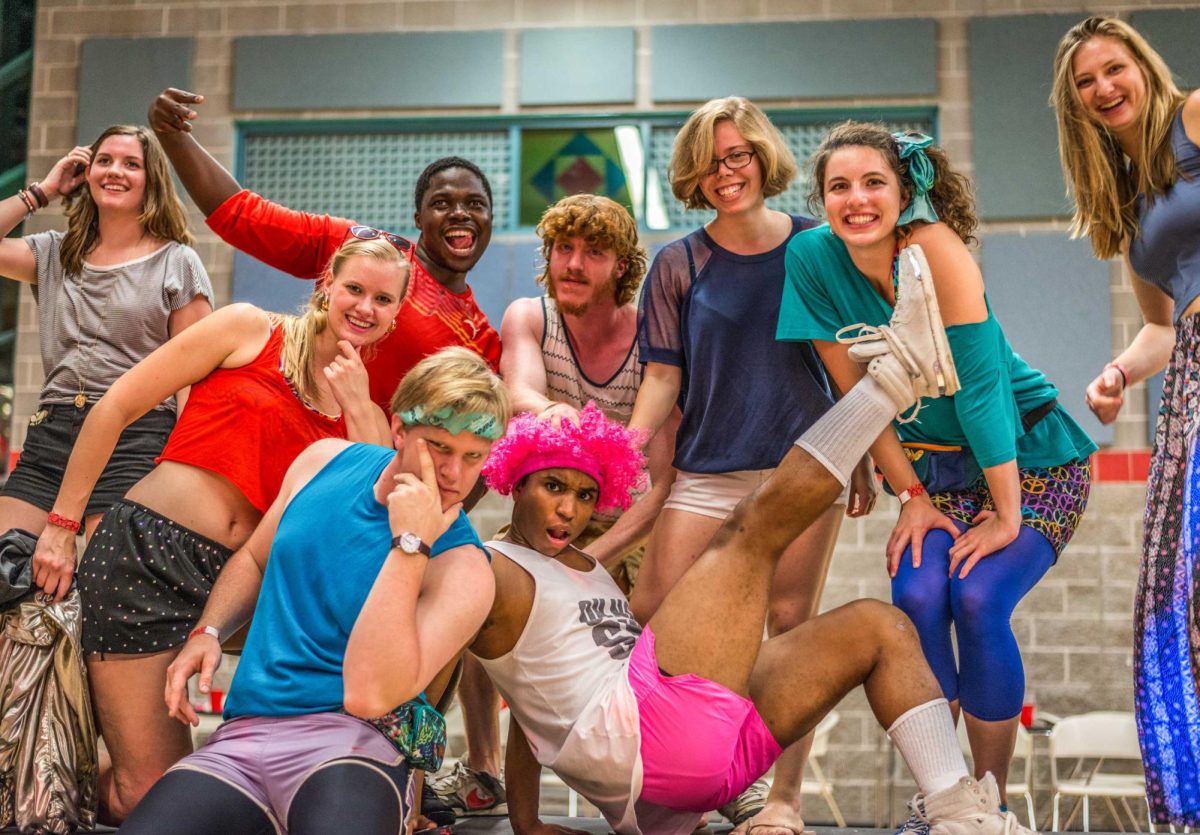Reflecting upon how her career as an academic affected her style, Professor Katya Gibel-Mevorach, anthropology, likened teaching to being an entertainer.
“Having been a student and a young person, I am fully aware of the fact that when we stand in front of a classroom we are being looked at. I am aware that when I come to campus, I am going to be the subject of scrutiny. Not only with what I say and how I say it, but also with how I’m packaged that day,” she said.
In an effort to expel the superficial, many people tend to associate the rejection of a person’s appearance with moral superiority. As a result, an interest in style or clothing is often dismissed as vanity or frivolity. “There’s this notion that fashion shouldn’t matter in the context of Grinnell,” said Professor Fredo Rivera, art history.
While exterior appearance should not be used as a judgment of a person, the dismissal and rejection of fashion can deny personal style the right to be a legitimate form of self-expression or an interest separate from the world of academia and other serious intellectual work.
Professor Johanna Meehan, philosophy, admitted that she was hesitant to participate in an article that would focus on her physical appearance. She worried of harming her academic reputation by talking about or revealing interest in something so often seen as inconsequential.
“If you spend a lot of time in your life fighting to be taken seriously, then doing something that you think might undermine that doesn’t seem like a good idea,” she said.
Gibel-Mevorach, Rivera and Meehan all said that the physical double standards that surround minority groups in both social settings and the workplace.
“In many ways, fashion is about performance and expression. How you put yourself out there can have an impact in how people read you. I think this is particularly significant for people of color, lower income people and women, especially in academia,” Rivera said.
Meehan said that her subject of expertise, philosophy, also separates the ideas of fashion and appearance from knowledge or achievement. “When I teach Plato, he has a whole rant about clothing and jewelry and particularly sandals, and I have to present this to my students as sort of a rejection of the body, a rejection of subjectivity. There is not just a social association of fashion with the superficial but a long tradition of the philosophical rejection of the body and the realm of appearance that one must turn one’s back on to enjoy the pleasure of clothing,” she said.
However, intellect and style do not necessarily need to be thought of as unconnected entities. Rivera reflected upon the existence of fashion as it relates to personal notions of expression and individuality. “There’s ways you could sort of think about fashion in relation to the decisions we make as consumers in a capitalist society, but you could also think beyond the context of capitalism as forms of personal expression that mean different things to different people,” he said.
Additionally, within the context of creating a sense of identity, or at least a tangible expression of identity, through clothing, the potential for deeper questions regarding social justice arise.
“There’s also way you can approach fashion with a more serious approach that brings up questions of social justice … drag as a form of politics, or queer expression as a form of fashion. I think there’s a need for fashion to remain sort of playful and maybe to some extent subversive. You can think of it in a serious academic way and you can think of it in a playful way. They’re not mutually exclusive,” Rivera said.
To strike this balance, Rivera gravitates to clothing and jewelry that not only bring him joy but also are meaningful to him. He describes his style as “tropical exuberance” and draws inspiration from the colors of his hometown, Miami, as well as his travels. “My fashion is as much inspired by where I’m from as where I’ve been,” he said.
Gibel-Mevorach, who teaches an anthropology course exploring the cultural politics of fashion, summarized her personal fashion style simply. “Everything I wear is black,” she said.
For Meehan, style is something equally personal. Meehan described her style as something not necessarily based on fashion but driven by “a desire to wear clothing that I find beautiful in some way.”
Meehan said her mother inspires her fashion sense. “My mother was a very serious person, very dedicated to social justice. She was a criminal defense lawyer, but she was very interested in fashion. My sense of the importance of fashion definitely comes very much from her,” she said.
Wherever they fall on the line between fashion and frivolity, though, all these professors view personal style as a powerful way to express themselves.
“I certainly take great pleasure in clothing that I think is beautiful, so that’s certainly an element of it. But years ago, when I was in college, a friend and I decided that you should look your best on your worst days because you can’t control all the bad things that are likely to happen on any given day, but being put together is kind of an armor in the face of it all,” Meehan said.

























































